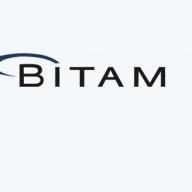

Tableau Enterprise and Bitam Artus compete in the business intelligence and analytics sector. Tableau Enterprise seems to have the upper hand due to its comprehensive analytics capabilities and in-depth reporting.
Features: Tableau Enterprise is known for advanced data visualization, interactive dashboards, and extensive analytics capabilities. Bitam Artus provides operational intelligence features, real-time insights, and process optimization.
Ease of Deployment and Customer Service: Tableau Enterprise integrates easily with existing IT environments and offers strong support systems. Bitam Artus provides flexible deployment, suitable for businesses with unique system requirements, and solid customer service.
Pricing and ROI: Tableau Enterprise entails higher setup costs with expansive functionality, leading to significant long-term ROI. Bitam Artus offers a more cost-effective setup appealing to smaller businesses, delivering ROI through rapid operational insights.
| Product | Market Share (%) |
|---|---|
| Tableau Enterprise | 7.6% |
| Bitam Artus | 0.6% |
| Other | 91.8% |

| Company Size | Count |
|---|---|
| Small Business | 117 |
| Midsize Enterprise | 67 |
| Large Enterprise | 184 |
Artus is the core of the BITAM Suite. It consists of three fundamental elements:
Tableau Enterprise offers powerful features for creating interactive visualizations, dashboards, and maps, including drag-and-drop functionality and easy integration with multiple data sources, promoting real-time collaboration and self-service analysis.
Tableau Enterprise stands out with its ability to create user-friendly, interactive visualizations, making it pivotal for business intelligence applications. Users benefit from its seamless connectivity and advanced analytical functions, facilitating data blending and storytelling. Despite a complex learning curve and high licensing costs, its features like geospatial analysis and efficient content distribution drive its indispensable value for data-driven insights. Enhancements in predictive analytics and support integration with machine learning tools further its capabilities across industries.
What are the most valuable features?Tableau Enterprise is widely used for business intelligence, supporting industries like healthcare, telecommunications, and finance. Organizations utilize it to analyze performance indicators, operational insights, and financial analytics, enhancing decision-making through interactive reports and real-time data integration.
We monitor all BI (Business Intelligence) Tools reviews to prevent fraudulent reviews and keep review quality high. We do not post reviews by company employees or direct competitors. We validate each review for authenticity via cross-reference with LinkedIn, and personal follow-up with the reviewer when necessary.